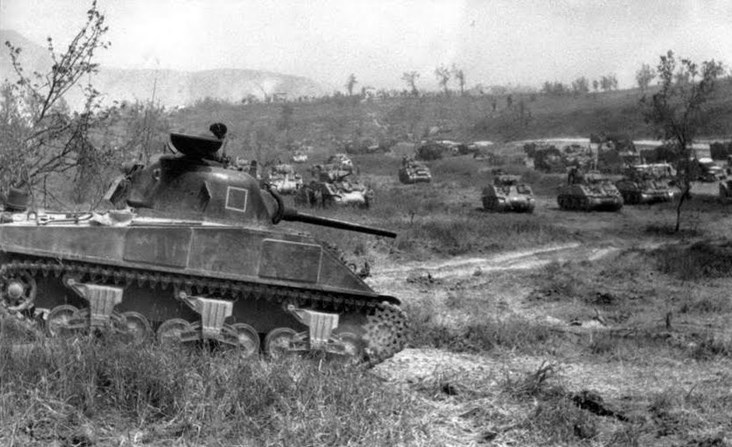Britain's Colonies in the War: No. 10 - Cyprus
The War Illustrated, Volume 8, No. 183, Page 75, June 23, 1944.
Strategic strong-point in the Eastern Mediterranean, Cyprus, which proved a deterrent bastion against further German progress in the area during the critical days of the African campaign, has been a British colony since 1925. The island, 3,572 square miles in extent, is chiefly an agricultural producer, sending fruit and vegetables to help feed our Middle East armies and also to Britain. Among other war materials produced are quantities of asbestos and chrome.
Contribution of a high order in the active war theatres has been made by the Cyprus Regiment (comprising transport and pioneer companies) which has served in Greece, Crete, Egypt, Libya and Abyssinia; it was the first colonial regiment to contact the enemy in France.
Unloading stores on the quayside at Famagusta, the island's chief port. British gunners of the A.A. defences receive instruction in the use of field radio transmission sets designed to increase their already high efficiency as marksmen, while another "class" of men handle a light Bofors gun, watched by General Sir Bernard C. T. Paget, K.C.B., D.S.O., M.C., C.-in-C. Middle East Forces, during a tour of inspection. On the ancient ramparts of Famagusta, men of a naval signals post keep watch.
Previous and next article from Britain's Colonies in the War
Our Colonies in the War: No. 9 - The Bahamas
Consisting of 700 islands, with a total area of 4,375 square miles, the Bahamas have as their capital Nassau, key port on sea routes between Florida, New York, Cuba, Haiti and Jamaica, besides vital i
Our Colonies in the War: No. 11 - The Cameroons
Remembering the days of Teuton misrule that part of the Cameroons which became British after the Germans were defeated there in February 1916 is helping to ensure another defeat for the enemy. Lying b
Index
Previous article
Moving up into Battle
Moving up into battle over the Cassino plain, massive Sherman tanks roll on to help smash the Germans at San Angelo, important village south of Cassino in the Gustav Line area. This photograph was t
Next article
The Battle Fronts
It is high time to stop using the term Second Front. It has long ceased to be accurate, though it conveniently defined out strategic aims. Now that those aims have taken concrete shape we should, I




